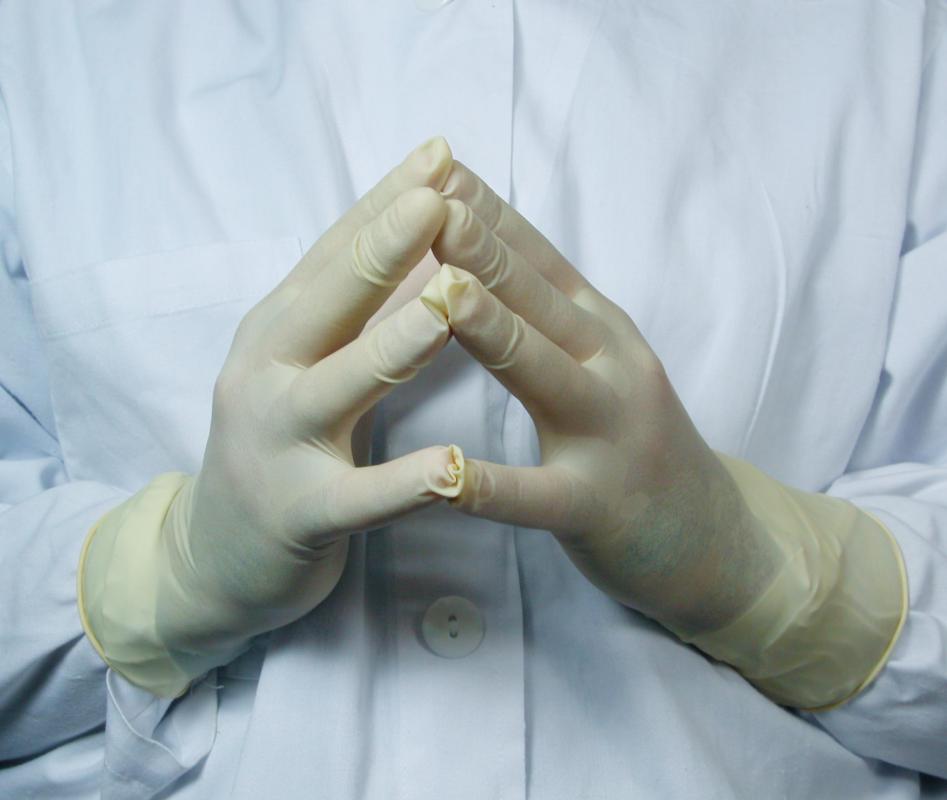At WiseGEEK, we're committed to delivering accurate, trustworthy information. Our expert-authored content is rigorously fact-checked and sourced from credible authorities. Discover how we uphold the highest standards in providing you with reliable knowledge.
What Is Infection Control?
Infection control covers a broad range of procedures and preventive actions that are all designed to stem and contain the outbreak of infectious diseases. These measures can range from basic hand washing practices to cutting edge disinfection techniques. Infection control usually focuses on hospitals and health care facilities, but can also extend to schools, travel hubs, and the general population. There are a host of bacterial and viral infections, and they can manifest in varying degrees of potency. Humans, animals and plants all have the ability to transmit diseases in a myriad of ways, such as human to human contact, animal to human contact, and through the air.
Hospital environments are often susceptible to infectious outbreaks because of their very nature. Patients with infectious diseases are usually quarantined in a separate section of the hospital, but without proper infection control, medical staff can sometimes transfer the diseases to other parts of the facility. Other patients, already weakened by compromised immune systems, are highly susceptible to contracting these diseases. Other points of potential outbreaks are surgeries themselves, or other medical procedures. These factors mean that doctors, nurses, food workers, and janitorial staff are all educated on the principals of infection control.

Global air travel has been a critical element in spreading viruses across the world. Severe Acute Respiratory Syndrome (SARS) was believed to have spread in this fashion. In fact, the 2003 epidemic in Asia was seen as a textbook case of just how quickly a virus can travel from one country to another. Within three months SARS had spread to multiple countries and killed almost 800 people, with thousands of others infected. With pandemics like this, as well as faster delivery systems, infection control becomes a global concern.

Because of the potential for so many people to be infected by viruses and bacteria, infection control agencies have a wide range of objectives. These include data study, sample collection, immunization, contingency plans and fast identification and containment of any potentially deadly disease. Infection control experts advise people to take a few, simple precautions to contribute towards containing the spread of viruses. Washing hands thoroughly in hot water is key, as well as wearing a disposable cloth mask if already ill and infected. It is well to remember that when a person sneezes, germs are spread out into the air at speeds in excess of 100 miles per hour.
AS FEATURED ON:
AS FEATURED ON:













Discuss this Article
Post your comments